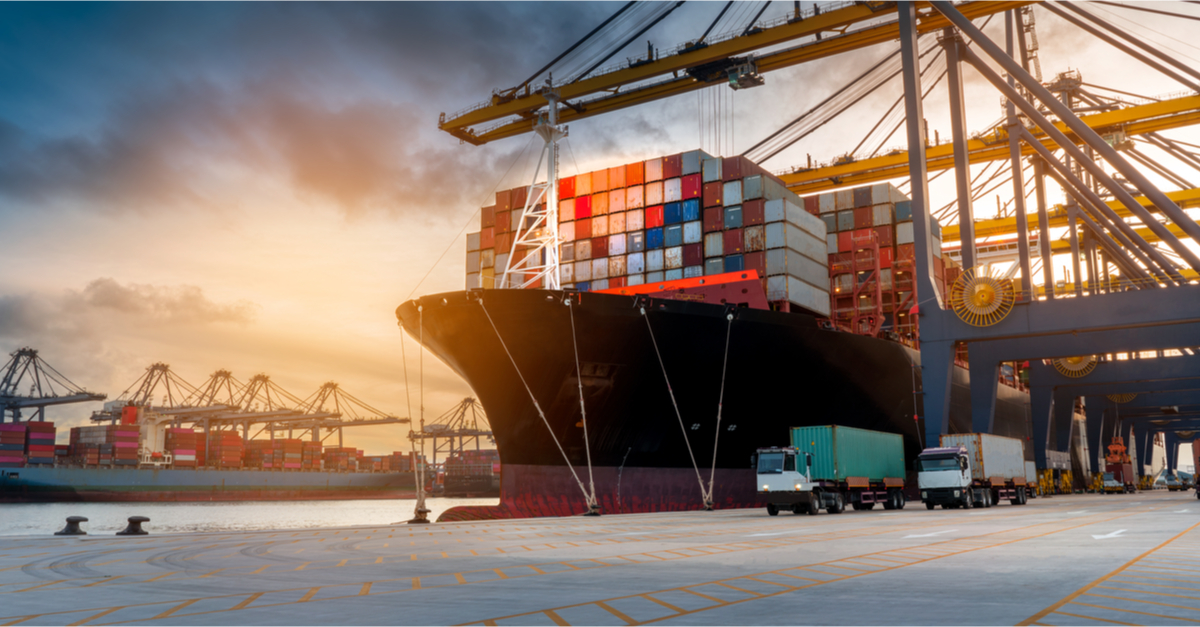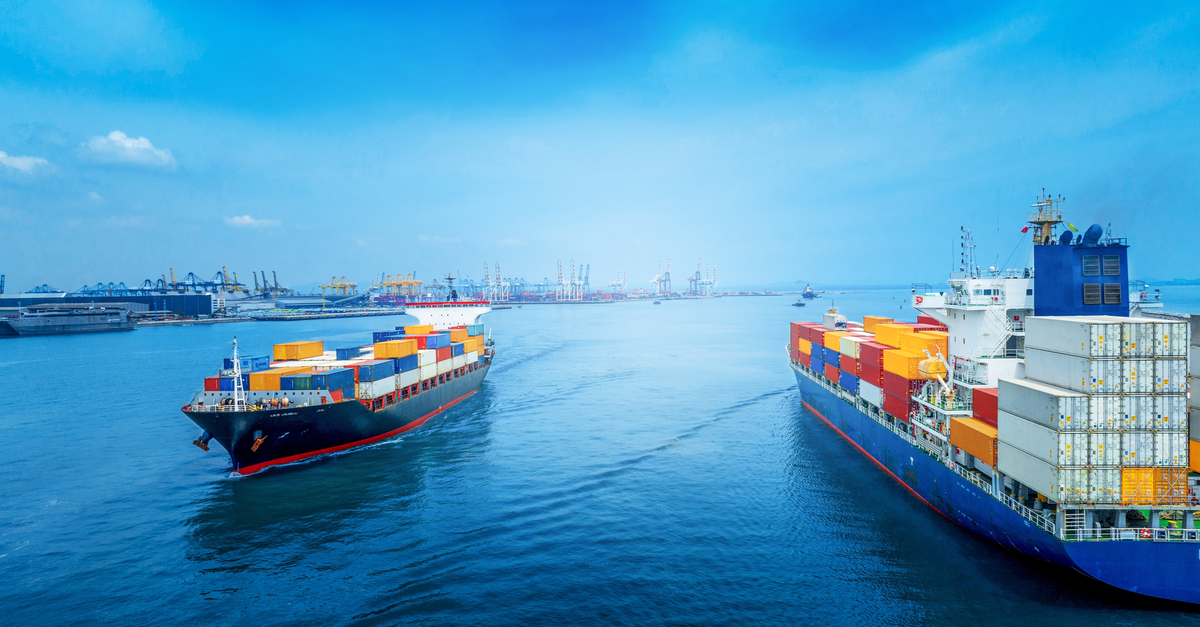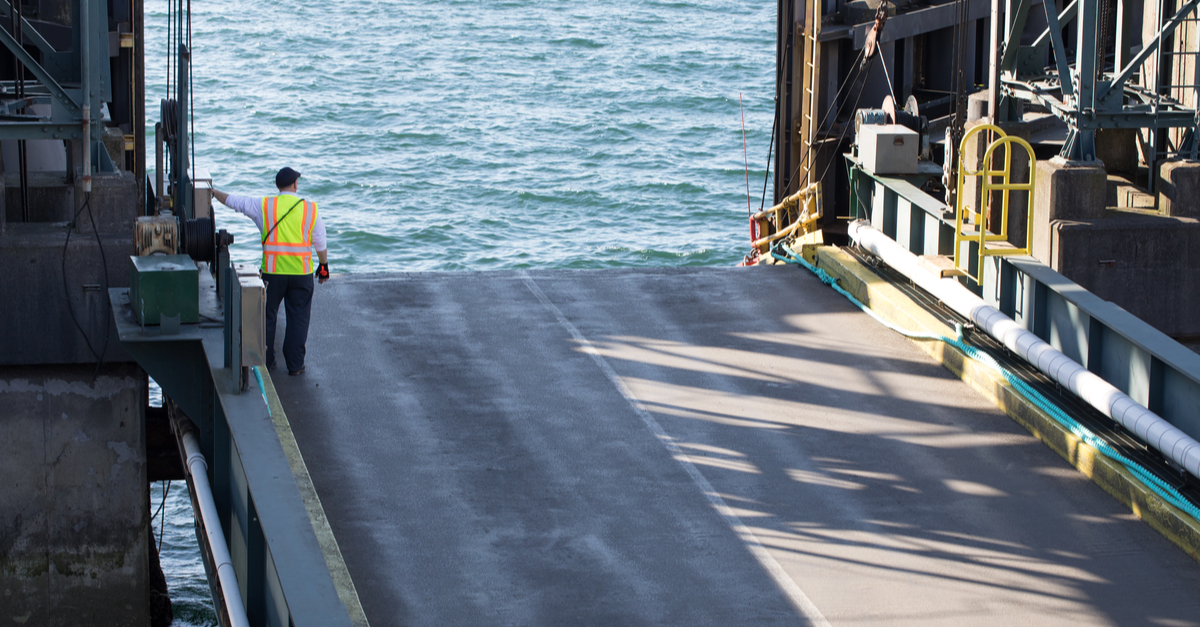Charleston Longshoreman Lawyer Near Me
The shipping and receiving industry is considered one of the most dangerous professions for accident injuries in the US. Every skilled longshoreman lawyer and maritime lawyer understands that our community’s dock, harbor and at sea workers are often at risk while spending long days under intense labor on docks, piers, terminals and large cargo vessels.
Due to the physically demanding nature of the job and exposure to the elements, on the job injuries are quite common in the maritime industries.
Hoffman Law Firm understands your struggles and are here when you need skilled legal representation for your workers’ compensation injuries as a dock or maritime workers.

What is a Longshoremen Lawyer?
A longshoreman lawyer handles personal injury cases for longshoremen (also known as dockers or dock workers). Longshoremen are workers who load and unload cargo onto ships at a dock or port within the shipping and receiving industry. This industry is full of workers who perform labor intensive work outdoors during all types of weather and is considered one of the most dangerous professions in the US.
Who is Covered By the Longshore and Harbor Workers' Compensation Act (LHWCA)?
The Longshore and Harbor Workers' Compensation Act (LHWCA) provides coverage to the following maritime employees:
- Longshore workers
- Harbor construction crews
- Shipbuilders
- Ship repairmen
*Non-maritime workers may also be covered if they are injured while working on navigable water. Captain and crew, however, are covered by the Jones Act instead of the LHWCA.
If you are not sure if you are eligible to file a workers' compensation claim, contact your trusted Charleston law firm of longshoreman lawyers today! Our Hoffman Law Firm team of skilled South Carolina attorneys have experience handling local cases, serving those who have been injured at the Port of Charleston, Wando Welch Terminal, South Carolina Ports Authority and other inland ports.
LONGSHOREMEN LAWYER NEAR ME
Our Charleston law firm of trusted longshoremen lawyers are ready
with legal advice, so schedule your appointment today!
Understanding the Longshore and Harbor Workers’ Compensation Act (LHWCA)
The Longshore and Harbor Workers’ Compensation Act offers provision for medical care, compensation and vocational rehabilitation to employees who are injured while:
- Working on the navigable waters of the United States
- Working in adjoining areas, such as docks, terminals, piers, wharves, loading/unloading zones
Notes: Under the LHWCA, “injury” includes illness, occupational disease and hearing loss that occur as a result of employment.
This federal law also provides survivor benefits to dependents if a maritime accident results in, or contributes to, the worker’s death. A private insurance company or the self-insured employer usually pay these benefits.
Common Benefits of the Longshore and Harbor Workers' Compensation Act (LHWCA)
The LHWCA provides compensation for:
- Lost wages
- Medical expenses
- Vocational retraining
The following benefits are available as well:
- Temporary partial disability
- Permanent partial disability
- Permanent total disability
- Necessary medical care from a physician selected by the injured worker (including mileage and other transportation costs)
3 Steps To Take After Your On The Job Accident
If you have a workplace accident at an SC port, oil rig or other navigable water along the east coast of South Carolina, follow these steps:
- Step 1: Notify your supervisor immediately.
- Step 2: Seek medical treatment. (You may choose your physician, but be sure to obtain a Form LS-1 authorization form.)
- Step 3: Contact an experienced accident attorney.
Filing a claim can be complicated, especially if there is dispute over whether your accident injury occurred on the job. Let our team handle the entire process, from filing to finish.

What is Maritime Law?
Maritime law is one of the oldest types of law, although many locals are unsure about what it entails. Our maritime lawyers, however, have in-depth knowledge and extensive experience handling cases like yours.
Maritime law is defined as “law that relates to commerce and navigation on the high seas and other navigable waters and that is administered by the admiralty courts.” Put simply, it regulates any type of offense that occurs on or near navigable waters.
What Is the Jones Act?
The Jones Act is a law governing the shipment of goods in the U.S. Inspired by the Merchant Marine Act of 1920, it primarily protects longshoremen and maritime workers. The Jones Act holds employers accountable if workers are injured on the job, requiring them to provide compensation for pain and suffering as well as lost wages.
Who is Covered Under the Jones Act?
The Jones Act covers longshoremen and seamen who suffer accident injuries on the job. A maritime worker must be on board a vessel at least 30% of the time to qualify for compensation.
DOCK WORKER LAWYER NEAR ME
We offer experienced dock worker lawyers at Hoffman Law Firm. We are ready with legal advice, so schedule your appointment today!

Common Compensation Recovered in a Maritime & Shipping Claim
Similar to a standard Workers’ Compensation claim, a maritime claim may provide compensation for the following:
- Lost wages (present and future income)
- Medical expenses (including treatment, rehab, etc.
- Loss of faculties (mental and/or physical)
- Pain and suffering
- Mental distress
- And more
However, due to the inherent danger of the job and the severity of maritime injuries, settlements are often larger than other Workers’ Comp claims.
Common Causes of Longshoreman Injuries
In the maritime and shipping industry, longshoreman face a wide array of dangers on the job. The most common maritime accidents involve the following:
- Explosions
- Fires
- Slips and falls
- Poor/improperly stowed equipment
- Running aground
- Collisions with other vessels or permanent structures
- Steering or navigational failure
Many maritime accidents are caused by human errors, such as:
- Long hours or extended time at sea
- Overexertion or fatigue
- Lack of sleep
- Inexperience
- Inadequate training
- Personal relationships aboard the vessel
- Reckless behavior, including drug or alcohol use
- Poor decision making and/or negligence
- Stress of job duties
What Should I Do After a Longshoreman Accident?
Step 1: Seek medical treatment.
If you have sustained accident injuries, getting proper medical care is top priority. Even if you do not think your injury is serious, be sure to visit your doctor as soon as possible. Keep in mind that a seemingly minor injury can become serious over time if left untreated. Plus, this record will be important if you choose to pursue a personal injury claim.
Step 2: Document the accident scene.
If you can, take pictures of the boat and/or work area where your accident occurred. Ask a co-worker or witness to snap some photos if you are unable – including the vessel/equipment that caused the injury and the surroundings. Even if you do not plan to take legal action, it is best to be prepared.
Step 3: Contact a local longshoreman lawyer.
Get in touch with an experienced dock or longshoremen lawyer immediately. If you are unsure whether or not you have a valid claim, our team can provide trusted legal advice. And your initial consultation is completely free! If you decide to move forward, we will help you take the next steps toward compensation.
What Our Clients Says About Us
The service and staff of Hoffman law firm was exceptionally professional. Staff lovingness and kindness was greatly appreciated.
Latvia
They were very helpful, compassionate and nice. I was at ease during the process of getting help with them. I would recommend them to anyone who wants honesty and professional lawyers
Marty
Hoffman Law Firm worked hard behind the scenes and completely surpassed our expectations. We will recommend them to our friends and family!
Read More Reviews
News & Articles:
Discover More About Longshoremen & Maritime
3 Tips for Filing A Longshoremen Workers’ Compensation Claim
Read More!Dangerous Jobs: Most Common Workplace Injuries
Read More!The Longshore Act 905(b) Claim: Vessel Negligence
Read More!What Injury Risks Does A Longshoremen (Dock Worker) Face On The Job?
Read More!Discover More on Workers Compensation
6 Common Mistakes In A Workers’ Compensation Claim
7 Benefits Covered by South Carolina Workers’ Compensation
7 Common Mistakes That Can Hurt Your Workers’ Comp Claim
7 Myths About Workers’ Compensation | Workers’ Comp Lawyer Explains
8 Reasons Your Workers’ Comp Claim Can Be Denied In Charleston
Can I Receive South Carolina Disability Benefits After a Workers’ Compensation Settlement in?
Does South Carolina Workers’ Compensation Cover COVID-19?
How Can a Workers’ Compensation Lawyer Help Your Claim?
How to File for Workers’ Compensation in South Carolina
How Social Media Can Impact Your Personal Injury Claim
Should I Release Medical Records in a Workers’ Compensation Claim?
South Carolina Workers’ Compensation for Carpal Tunnel Syndrome
Understanding Lost Wages After You Were Injured In an Accident in South Carolina
When to Sign a Workers’ Compensation Clincher Agreement
Who is Responsible for Your Slip and Fall Accident?
Workers Compensation for Heat Stroke | Heat-Related Injuries
Our Practice Areas:
Discover Other Cases We Manage
Workers’ Compensation
Read More!Wrongful Death Lawsuit
Read More!Traumatic Brain Injury
Read More!Spinal Cord Injury
Read More!Need to File An On The Job Injury Claim? Choose Hoffman Law Firm
If you have been injured in a maritime accident, Attorney David Hoffman and his experienced team can help! Trust our qualified longshoremen lawyers and maritime lawyers to advocate for you, providing top-notch legal representation to ensure justice is done.
We are ready to get started, so contact us today to schedule your free consultation!